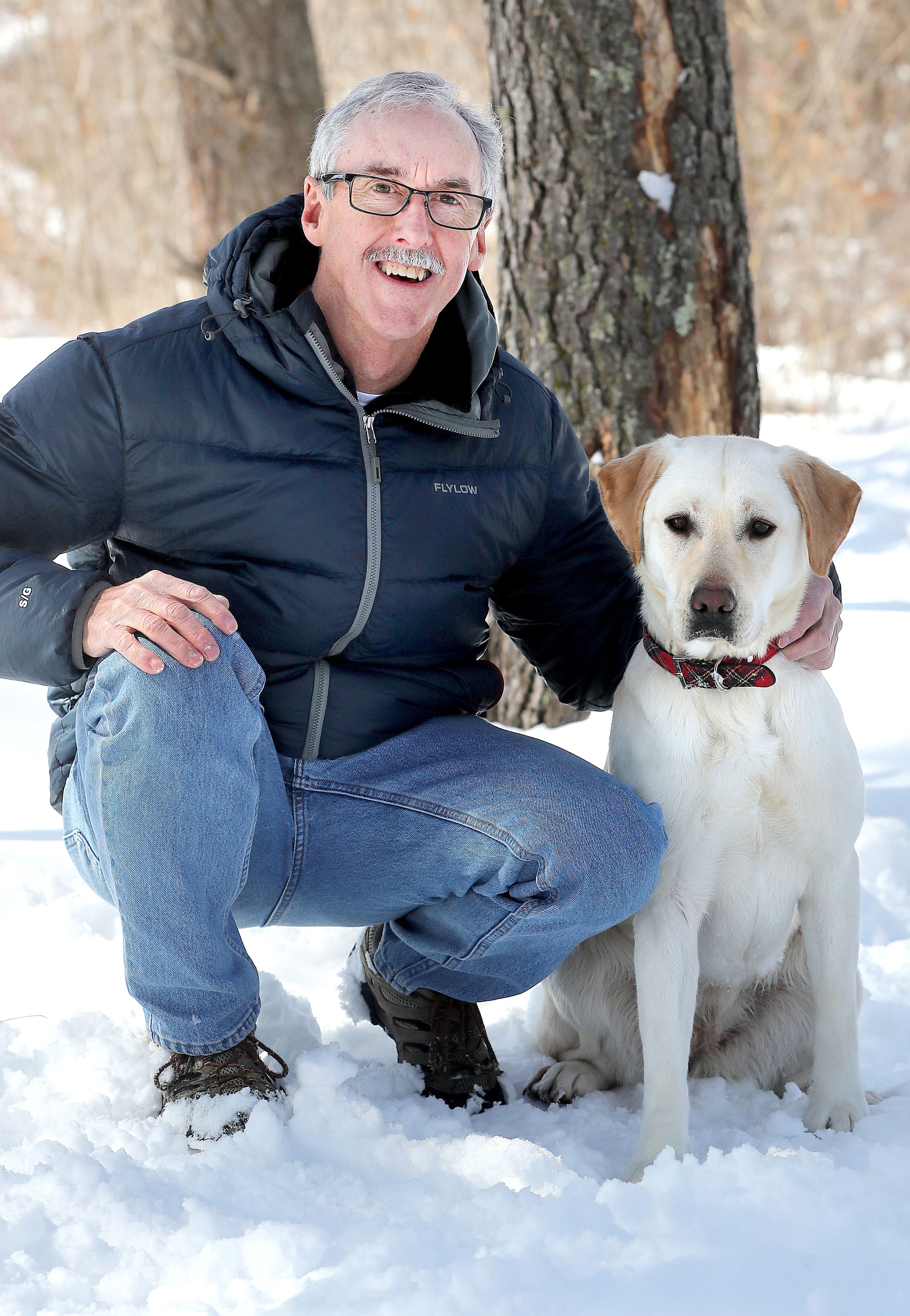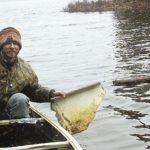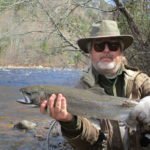For 38 years, Sam Cook had what some folks might consider a dream job as an outdoor writer for the Duluth News-Tribune. He would likely concur, with a caveat.
“When you go fishing for work, it’s not the same,” he says. “You may have a fishing rod, but you also have a notebook and camera. If you are doing it right, it’s work.”
Cook’s many readers know he does it right. For decades, he covered an outdoor beat in a region many see as a slice of heaven, posting stories from the Boundary Waters, the Bois Brule River, Lake Vermilion, the Apostle Islands and hundreds of other locations across northeastern Minnesota and northwestern Wisconsin. Along the way, he pushed the boundaries of traditional outdoor writing to include not only hunting and fishing, but a wide range of outdoor activities and adventures. Often, the outdoors provides a backdrop to a story about people, from the famous to the guy next door.
“It’s great to write about people who are doing something they love,” he says. “And going with them to one of their favorite places to do it.”
Last month, Cook crossed the portage into retirement. He will continue writing a general-interest column for the Friday edition of the News-Tribune. The outdoor torch is being passed to longtime DNT reporter John Meyers, who is well known for his coverage of natural resource issues. As for Cook, he has a summer’s worth of canoe trips and other adventures planned; for fun, not for work.
Cook is more closely associated with the canoe country than any other current outdoor writer, which speaks to his outdoor origins. A native of northeastern Kansas, he was introduced to the Boundary Waters on a 10-day Boy Scout trip in 1964. The discovery of this northern wilderness fueled a desire to return. In 1976, he took a one-year leave of absence from a job in advertising sales to move to Ely with his wife, Phyllis. The couple worked for an outfitter and the planned one year-stay became 2 ½ years. He started writing for the Ely Echo when his friend Doug Smith, who eventually became an outdoor writer at the Minneapolis Star-Tribune, left the paper for a reporting job in International Falls. Coincidentally, Dennis Anderson, the present outdoor columnist for the Star-Tribune, was working for a competing Ely paper. Yet another outdoor writer, the late Bob Cary, was Cook’s editor at the Echo. He learned a lot from Cary, although not necessarily about writing.
“We sat back to back in the office,” Cook recalls. “I’d pass my story to him, he’d reach over his shoulder to take it and then hand it back without reading it, saying ‘Looks good!’”
What the quick-witted and gregarious Cary did provide were lessons about life in the North, taking the aspiring writer and his wife under his wing. He remembers Cary as great influence and a good friend. He counseled Cook to find a job with a daily newspaper to hone his skills and position himself to fulfill his ambition to become a newspaper outdoor writer. On that advice, Cook moved Longmont, Colo. to be the sports writer/editor for a small daily paper. Then his friend Smith, now at the Duluth News-Tribune and Herald (at the time the paper had morning and evening editions), called to tell him of an opening there. He was hired in 1980 and got the outdoors job when it opened the following year.
In retrospect, the 80s was a transitional decade for the outdoors. Hunting and fishing were at peak popularity, but Baby Boomers were enthralled with so-called “non-consumptive activities,” such as paddling, hiking and dog-sledding. Some were setting off on elaborate and well-publicized adventures from their home bases in northern Minnesota. Broadly defining the outdoors, Cook covered all of it.
His readers were treated to stories on a wide range of topics, that included visiting a traditional deer camp, canoeing far northern rivers, following a long-distance sled dog race and meeting the Steger expedition when it arrived at the North Pole.
“We flew to the North Pole in a Twin Otter,” he says. “You know how they land a plane up there? On the first pass, they put one ski on the ice to test it. On the second pass they put two skis down. They actually land on the third pass. They never turned off the engines while we were on the ice.”
Closer to home, he travelled by dog team to visit Dorothy Molter, the famed “Root Beer Lady” who lived in the BWCAW at Knife Lake. He spent mornings at public shore-fishing spots near Duluth, talking to the everyday folks who fish there. Saturday hunting and fishing openers were often chronicled with a photo-rich field report in the Sunday paper. While his reporting is always top-notch, the story Cook delivers was often less about the hunting or fishing than it was about the people doing it.
“I find people endlessly fascinating,” he says. “Almost everyone has some good stories to tell.”
He once went brook trout fishing with an 89-year-old man from Finland, Minn. The old-timer often fished with his brother, but he had one brookie hotspot he kept hidden from everyone, including his brother. Finally, he relented and took his brother to the secret spot. When they arrived, his brother said, “I’ve been here lots of times.”
Although he didn’t reveal places where his story subjects took him hunting or fishing, there was one time when the word got out, leaving Cook a temporary persona non grata among North Shore brook trout anglers. That time, a Grand Marais man took him to a stocked brook trout lake loaded with out-sized fish. Although he didn’t name the lake, he mentioned how many pounds of brook trout fingerlings the DNR had stocked there. Back then, every hardcore brook trout nut had dog-eared copies of the DNR’s recent stocking reports. A day after the story was published, a friend from Grand Marais called to tell him there were 20 vehicles parked at the trailhead leading to the lake. It was a lesson learned the hard way.
As a testament to his popularity among his readers, Cook has published six books, with some regional bestsellers in the mix. When Dennis Anderson left the St. Paul Pioneer Press to take the helm of the Star-Tribune’s outdoor coverage, the Pioneer Press offered Cook a significant pay raise to entice him to move to the Twin Cities. He didn’t bite.
“We loved Duluth and raising our two kids there,” he explained. “Phyllis and I are both happy we stayed.”
Now that he’s retired, he intends to remain in Duluth and to continue writing. Neither is likely a surprise to his readers. Although he’s met many folks across the North in nearly four decades of outdoor reporting, many more who know him only through his writing regard him as a friend. Like Cook, their love of the outdoors keeps them rooted in the North.





